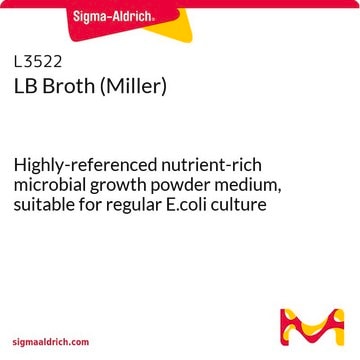L7393
Leu-Leu methyl ester hydrobromide
≥97% (TLC)
Synonym(s):
LLME, HBr, Leu-Leu-Ome, HBr
About This Item
Recommended Products
product name
Leu-Leu methyl ester hydrobromide, ≥97% (TLC)
Assay
≥97% (TLC)
form
powder
color
white
storage temp.
−20°C
SMILES string
Br.COC(=O)C(CC(C)C)NC(=O)C(N)CC(C)C
InChI
1S/C13H26N2O3.BrH/c1-8(2)6-10(14)12(16)15-11(7-9(3)4)13(17)18-5;/h8-11H,6-7,14H2,1-5H3,(H,15,16);1H
InChI key
QIPBCIHWFATZOF-UHFFFAOYSA-N
Application
- VCP maintains lysosomal homeostasis and TFEB activity in differentiated skeletal muscle.: The article discusses the maintenance of lysosomal function and transcription factor activity in muscle cells, which may be influenced by small molecular agents like Leu-Leu methyl ester hydrobromide that affect cellular processes (Arhzaouy et al., 2019).
Biochem/physiol Actions
Storage Class Code
11 - Combustible Solids
WGK
WGK 3
Flash Point(F)
Not applicable
Flash Point(C)
Not applicable
Personal Protective Equipment
Certificates of Analysis (COA)
Search for Certificates of Analysis (COA) by entering the products Lot/Batch Number. Lot and Batch Numbers can be found on a product’s label following the words ‘Lot’ or ‘Batch’.
Already Own This Product?
Find documentation for the products that you have recently purchased in the Document Library.
Customers Also Viewed
Our team of scientists has experience in all areas of research including Life Science, Material Science, Chemical Synthesis, Chromatography, Analytical and many others.
Contact Technical Service









